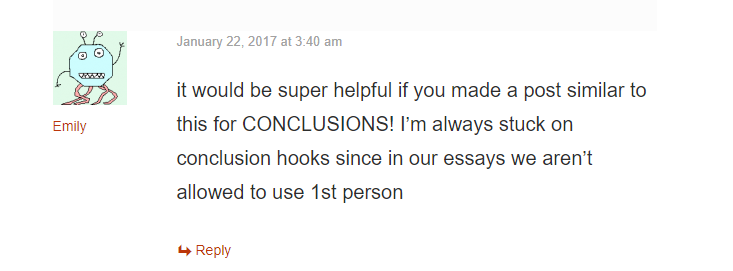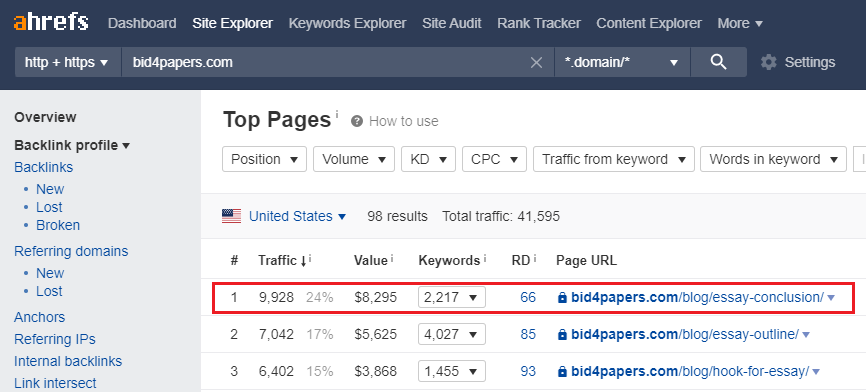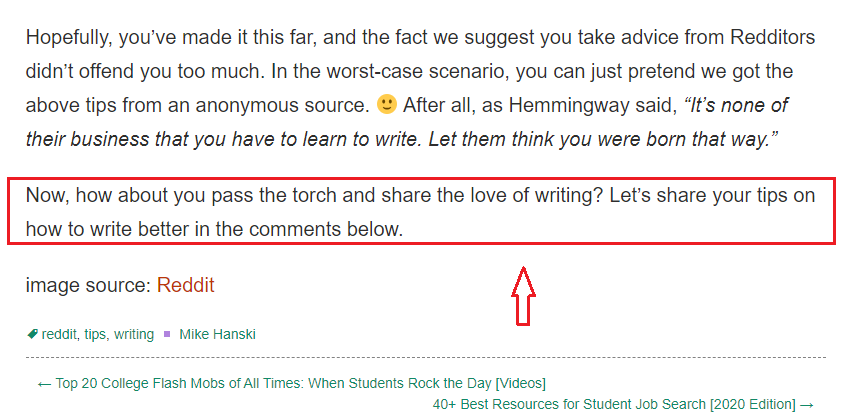You write blog posts, press releases, and guest articles to empower your content marketing endeavors. You promote them to make as many targets as possible to find your content.
But is there anything else you can do with a published content piece to influence its conversion?
As a blogger or online business owner, you know the power of comments. That’s why so many blog posts end with a call to “share thoughts in the comments below.” Moreover, some marketers go further and hire blog comment writers to encourage discussions!
But there’s a catch:
Comments’ quality, not quantity, is what matters for website conversion. Your reaction to comments matter too. This is why blog hosts often ask guest writers to participate in discussions and answer all the responses under their submissions.
Bad work with comments can kill even the most appealing and compelling article. The question is how to use readers’ comments and how to work with them so that your content would become even more powerful.
Let’s reveal a few insights below.
Why Comments Matter
- They grow page views. If a content piece evokes discussion, it means that it’s interesting. It’s a signal for users to read it. Also, media editors include the most discussed articles in their newsletters, show them on homepages, add them to “editor’s picks,” and so on. The more comments, the more exposure.
- They complement a content piece. When people don’t understand something, they will go to the comments to ask a question. You will answer and close the gap in the article, making it more informative and valuable.
- Comments can help to convert a reader. If the reader got something wrong or didn’t have enough arguments in the article, you have a chance to explain your point of view in the comments.
- They give you new content ideas. People comment about what bothers them. You can pick out something useful in the general flow of thoughts, such as what users lack to make a decision or what other topics they’d like you to cover.
Example:
This comment on essay hooks helped develop a new blog post about essay conclusions, which has remained the #1 source of organic traffic for a few years already.
And now, for the practical tips on working with comments:
1) Don’t Fret Over Negative Comments
If a blog post or any other content asset gets tons of negative comments, it doesn’t mean it’s low-performing from a marketing standpoint.
When creating content, you want to get leads, traffic to their blog, subscribers, etc. All are measurable metrics. And if that article gets 200 negative comments but brings new leads, who can call it ineffective?
So decide what you expect from the article in advance. And discuss it with an outsourced author if you don’t write it yourself.
One more thing:
Happy people don’t write comments. According to the statistics, only one in ten satisfied consumers will leave a comment or a positive review. At the same time, a negative experience is twice or thrice times more likely to share online.
What to do with negative feedback? Nothing. Accept it and do not take other people’s words to heart.
It’s one thing when you get reasonable comments, which means you’ve made a mistake somewhere. If that’s the case, check the facts, apologize, revise the article, and try to turn that negativity into a positive experience.
Treat comments as an increase in the article’s virality. The more reactions it gets, the more people will see and read it.
2) Help Commentators If You Can
it is ideal if people in the comments ask you to clarify or tell something or help them solve a problem. Never ignore such commentators. Answer questions, promise to supplement the article or write a new one, give contacts of people who can help.
You write content for the audience and want to show your brand from its best side, don’t you? Sincere help is the best way to build a positive reputation.
But don’t lie or fabricate if you don’t know the answer to a question. Stay honest, and write that you can’t tell but check with the right employee and return. (But be sure to come back, don’t leave a person empty-handed.)
3) Be Polite
Sometimes it’s hard to resist the temptation to go off the deepest end and be rude to those leaving unreasonably negative comments for your blog posts or social media works. It’s not your method if you come to build audience loyalty and trust. Even if you’re right, readers won’t accept the negativity in your tone of voice.
Stay polite in the comments, even if a commentator frustrates you. Offenses and swearing will make you look inadequate and foolish.
And again, learn to distinguish fair criticism from haters. Work with the former, and ignore the latter.
3) Write As If You Reply to Everyone, Not a Particular Person
Your reply will be read by your interlocutor and thousands of other people who check the comments. So before you post, ask yourself, “How will this comment describe me and my brand in the eyes of strangers?” If not that great, you’d better reword your comment.
If there is a suspicion that only you and your interlocutor will understand the dialogue, it’s better to revise it. Use messengers for personal conversations; comments are for communicating with all the audience.
Make your message straight and clear, use positive language, and write like a human. (Avoid professional slang, jargon, or any other terms some people can misunderstand.)
4) Encourage Discussions
Ask questions in the first comment or the article itself. Invite readers to share their examples or experience, propose them to complement the article with their insights, etc.
Such calls to action are so popular among bloggers and content writers because they do work well.
Communicate with your audience in the comments. Ask follow-up questions, ask for more details, share your stories, and thank them for their kind words. That’s how you inspire further discussion and make comments more informative for readers.
Ideally, you should respond to all comments. But if you don’t have enough time for that, focus on the most valuable and interesting ones.
Final Thoughts
Not only do the above tips work for the comments on guest articles or press releases, but they also come in handy for blogs and social media posts. So, try them when working with the comments on your resource — and you’ll see the boost of user engagement, loyalty, and conversion very soon.
Do you work with the comments on your website, blog, or social media? What’s your strategy here? Let’s discuss this in the comments below! 🙂
Featured Image Credit: Unsplash.com
Lesley is a ghost hiding behind posts on writing craft, content, and digital marketing. She builds web texts, writing for Bid4Papers.com blog and others. Specializing in guest blogging and self-criticism, Lesley develops a habit of doing her best proofreading before she hits “send.”







